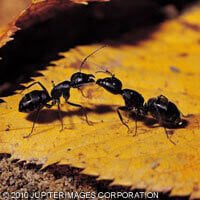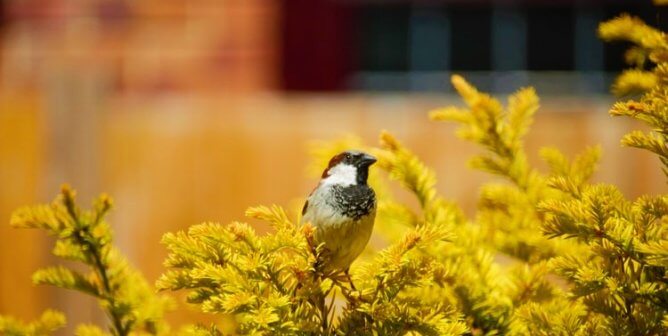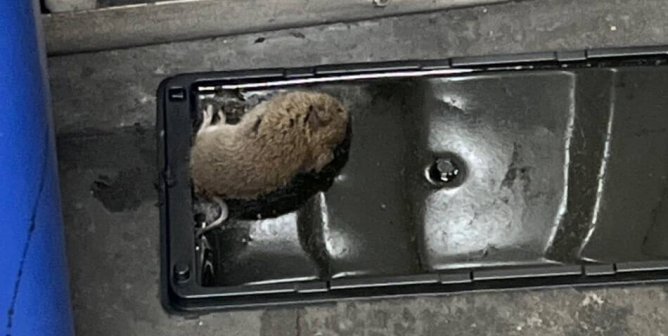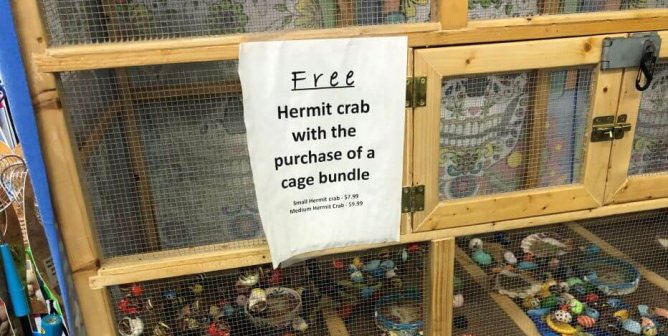Ants
Ants have been scurrying around on Earth for about 100 million years and can be found almost anywhere on the planet. There are 600 known species of ants in the U.S., but only a very small percentage of species take up residence near our homes.
Ants are extremely social insects and live in colonies that usually center on one or more egg-laying “queens” with smaller worker ants caring for the queen and her eggs. In these colonies, every ant has an individual job.
Workers forage and bring food back to the colony. Workers are incapable of digesting the food, but the larvae are not, so the workers give the food to the larvae, and the young ants digest the food and regurgitate it back to the worker ants, who then take it to the rest of the colony.
Ants also work together to transport materials in and out of the colony. Although these tiny critters can carry five to 20 times their body weight, ants also work cooperatively in small groups to transport heavier objects.
Different species of ants have different food preferences. When a worker ant has found a good food source, he leaves a scent trail so the other ants can find the food. In case you’re wondering, that’s how they all seem to know where to find your cereal!
With their combined weight greater than the combined weight of all humans, ants are the most numerous type of animal on earth. Ants have been known to share mutually beneficial relationships with plants. In what are known as symbiotic associations, both organisms benefit from the relationship through enhanced survival, growth, or fitness.
In Central America, ants live in the swollen thorn sections of Acacia trees, where the plant provides shelter and nutrients to the ants, and in return, the ants defend the Acacia tree from invaders. The ants attack other insects, mammals, or plants such as vines that try to invade their home. On the other hand, they steer clear of bees and other insects that pollinate the Acacia’s flowers, allowing the tree to reproduce.
The relationship between you and the ants in and around your home may be less than mutually beneficial. If so, there are a few simple things that you can do to solve any perceived problems with these tiny beings without the need for toxic chemicals and cruel traps.
Because insecticides are potentially hazardous to all animals, including humans, you should never use them. The best way to keep ants from entering your home is to remove sources of attraction. Keep your kitchen clean. Do not leave crumbs or garbage around, and keep all food, including companion-animal food, and trash in tightly sealed containers. Wash countertops, floors, and cabinets with equal parts vinegar and water.
When you see ants in your home, try to follow them back to the point where they entered. Use caulk to seal all possible entrances into the house, remembering that ants are tiny and can fit through almost any small opening. Apply weather stripping under doors and seal holes and cracks with caulk.
A product called Orange Guard is a nontoxic organic ant repellent that is harmless to humans and other animals and will drive ants away from areas where they are not wanted. However, when applied directly to ants, the active ingredient d-Limonene (orange peel extract) destroys the waxy coating of the insects’ respiratory systems, causing the ants to suffocate, so please do not spray ants with the repellent. Simply spray the repellent around your home—the citrus fragrance of d-Limonene will repel the ants without killing them.
There are also many natural repellents that you can place around your home to prevent ants from coming in. If ants are coming in the cracks of doors and windows, put a cinnamon stick, coffee grinds, chili pepper, paprika, cloves, or dried peppermint leaves near the openings. You can also squeeze the juice of a lemon at the entry spot and leave the peel there. Planting mint around the foundation of the house will also keep ants away. Place cloves of garlic around indoor and outdoor ant pathways.









